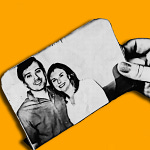During Martin Shkreli’s securities fraud trial in 2017, media and public speculation swirled over whether the brash young drug company founder — who never seemed to be at a loss for words on Twitter or when talking to reporters — would testify in his defense.
Although it seems counter-intuitive to the average person, lawyers usually tell their clients to avoid testifying in criminal cases, even if said lawyers are totally convinced of their clients’ innocence. Legally speaking, prosecutors have the burden of proving wrongdoing; defendants are not supposed to have to “prove” their innocence. Additional penalties for testifying in your own defense, if you’re convicted, can also be quite harsh. You might receive more time in prison for presumably lying under oath.
Much to everyone’s disappointment, including probably Martin’s, he did not testify. His famous and respected defense lawyer, Benjamin Brafman, who struggled mightily to rein in Martin’s unruly antics on many days, did manage to get his client to follow his advice on that count.
What many people did not realize was that Martin had already shared much of his side of the story with the government, in a long, rambling monologue he delivered after showing up at the U.S. attorney’s office in Brooklyn in January 2015. He had gone there without a lawyer to protect himself, trying to “get to the bottom” of a story I had written stating that he was under criminal investigation. An FBI record of the meeting, called a “302,” was filed in the fraud case. But its contents were never directly discussed during the trial.
In it, Martin provided a long-winded and wide-ranging history of all sorts of business activities. Apparently, he wasn’t sure what exactly he might be under investigation for, so he tried to explain anything and everything he thought might be relevant. The FBI document paraphrases his comments in the language of a neutral third-party observer. Nonetheless, Martin’s personality and cadence come through loud and clear.
Martin later told me that he left the U.S. attorney’s office that day realizing my reporting had been accurate, and also that the government likely already considered him to be guilty. Everything he said in his defense probably just helped agents and prosecutors build their case.
Today, all of that is well in the rearview mirror. Martin was released from prison into a halfway house in New York earlier this month. Undoubtedly, he would like to leave all of the issues that gave rise to his fraud conviction in the past, and start fresh with his life and professional ambitions.
But readers like yourself might be interested in knowing how Martin presented his version of events to the Feds back in January 2015. Here is an annotated and mildly edited version of the actual “302,” showing what he had to say.
FEDERAL BUREAU OF INVESTIGATION
Date of entry 02/11/2015
On January 29, 2015, MARTIN SHKRELI, Chief Executive Officer (CEO), TURING PHARMACEUTICALS (Turing), [bunch of stuff redacted by the government], was interviewed at the United States Attorney’s Office (USAO), Eastern District of New York {EDNY}, by [two FBI agents, two assistant U.S. attorneys and a paralegal]. After being advised of the identify of the interviewing officials and the nature of the interview, SHKRELI stated the following:













